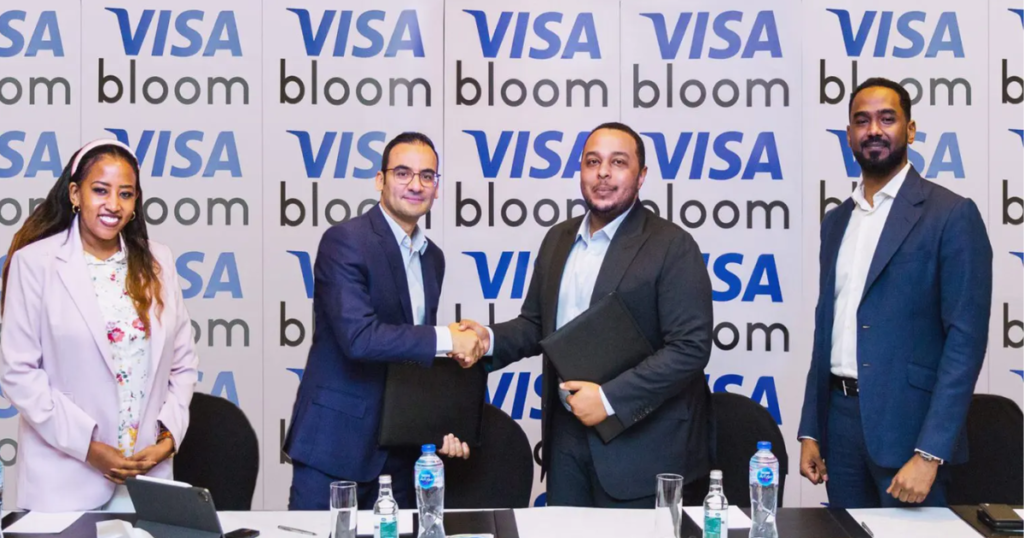The Sudanese Tech Startup Ecosystem: Bloom in Focus

Sudan, with a population of nearly 45 million people, is one of Africa’s ten most populous countries, with enormous economic potential. It has an abundance of natural resources, including oil and gold, a tenth of the world’s unused arable land, and access to Africa’s rapidly growing markets and the Gulf’s affluent economies.
Gradually recovering from decades-long sanctions that have hampered the Northeast African nation from realizing its full economic potential, particularly in the thriving African tech ecosystem
Technology, which is now a $5.3 trillion worth industry, has a significant impact on both local and global economies. It’s not just about Big Tech; startups generate just as much value as established companies. The importance of tech startups in the African economy has never been greater.
Scalable startups are increasingly proving to be the engines driving economic growth and job creation in many markets around the world. Startups, on average, grow three times faster than the traditional economy and have contributed 10% to global job growth since 2017.
Startup ecosystems – the broad network of players that contribute to a thriving startup community and economy – are fueled by a variety of factors, including capital and talent, as well as policy and partnerships. On the capital front, data shows that startups with venture capital (VC) backing add jobs three times faster.
Sudan has been gradually reintegrating back into the global economy after decades of isolation, with international sanctions gradually being lifted since the election of the new government.
Sudan Reintegrated into Global Economy
On March 14, 2021, Visa officially began issuing Sudanese-issued Visa cards, marking a watershed moment in the country’s reintegration into the global economy and the accelerating progress of financial inclusion in one of Africa’s largest markets.
According to the World Bank report, only 15% of Sudanese adults have a bank account, although 60% of the population is under the age of 247, a youthful demographic that is increasingly tech-savvy. The mobile penetration rate is 76%, which is higher than the Middle East and North Africa average of 64%, and it is becoming clear that digitalization can bridge the gap in bringing banking services to consumers, such as payment apps and mobile wallets have far greater reach than traditional banks.
Interestingly, an ingenious fintech startup, alsoug, announced the close of a $5 million fundraising last year to establish a national payments network enabling quick, easy, and safe transactions for all Sudanese, around the same time that Bloom entered the Sudanese market.
The fundraising round was the first international venture capital investment into a Sudanese technology company since the country’s international sanctions were lifted.
The Genesis of Bloom

Ismail Ahmed, a Sudanese, and Youcef Oudjidane, an Algerian, have long been friends and spent much of their time discussing fintech dominance in Africa. Later, they decide to invest in two fintech startups. However, as their research progressed across Africa’s four cardinal directions, particularly in West and North Africa, they discovered a recurring gap that needed to be filled. Oudjidane was a managing partner at Class 5 Global, a venture fund based in San Francisco, at the time, where he oversaw investments in Africa, the Middle East, and parts of Latin America. Ismail was a serial entrepreneur and former Barclays Investment Bank investment banker.
Seeing the gap—building to hedge against local currency depreciation—the duo paused their investment and began working on a solution by assembling their ideal team. They approached Khalid Keenan, a former Goldman Sachs engineer, and Abdigani Diriye, a former Amazon and IBM research manager, and asked them to join the team as Chief Technology Officer and Chief Product Officer, respectively.
They were accepted into YC two days after their interview in June of last year and will be a part of the 2022 Winter Batch. Bloom was founded in October of last year.
Bloom is a Sudanese fintech that provides a high-yield savings account as well as related digital banking services.
After emerging from stealth that same month, the startup announced in March that it was a part of Y Combinator’s winter batch. Bloom’s waitlist was made public in March, and at the time, the startup had more than 15,000 people signed up; that number has now surpassed 100,000, They claim the platform has been launched in Sudan, but they refuse to provide specific numbers of customers who are actively using the product.
Bloom Funding
Bloom raised a $6.5 million seed round from Visa, Y Combinator, US-based VCs Global Founders Capital (GFC) and Goodwater Capital, and UAE-based early-stage firm VentureSouq, among others.
The seed round for the fintech is the largest in Sudan’s history, a country with a largely undeveloped tech ecosystem. The funding comes on the heels of an undisclosed pre-seed round last year.
According to the startup, the seed round will assist it in carrying out its expansion strategy across the Anglo-East African region, including Ethiopia, Kenya, Rwanda, Tanzania, and Zambia.
“Our product is live in Sudan,” says Bloom’s CEO Ahmed Ismail. The strategy is to start small and then expand to other markets. We plan to be in at least one market by the end of the year, and possibly two more by early next year.”
